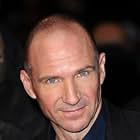Post-WWII Germany: Nearly a decade after his affair with an older woman came to a mysterious end, law student Michael Berg re-encounters his former lover as she defends herself in a war-crim... Read allPost-WWII Germany: Nearly a decade after his affair with an older woman came to a mysterious end, law student Michael Berg re-encounters his former lover as she defends herself in a war-crime trial.Post-WWII Germany: Nearly a decade after his affair with an older woman came to a mysterious end, law student Michael Berg re-encounters his former lover as she defends herself in a war-crime trial.
- Won 1 Oscar
- 26 wins & 48 nominations total
- Hanna's Neighbour
- (as Marie Anne Fliegel)
- Director
- Writers
- All cast & crew
- Production, box office & more at IMDbPro
Storyline
Did you know
- TriviaTo avoid legal problems, the crew waited until after David Kross' 18th birthday, July 4, 2008, to film his sex scenes.
- GoofsWhen Michael visits New York in 1988, the cab he is in is followed by modern-day cars including a 2000s GMC SUV behind all the period vehicles.
- Quotes
Michael: I'm not frightened. I'm not frightened of anything. The more I suffer, the more I love. Danger will only increase my love. It will sharpen it, it will give it spice. I will be the only angel you need. You will leave life even more beautiful than you entered it. Heaven will take you back and look at you and say: Only one thing can make a soul complete, and that thing is love.
- Crazy creditsThere are no opening credits, other than the studio logo.
- ConnectionsFeatured in The 14th Annual Critics' Choice Awards (2009)
- SoundtracksMusik liegt in der Luft
Written by Heinz Gietz, Kurt Feltz
Performed by Caterina Valente
Courtesy of M.A.T. Musice Theme Licensing Ltd.
Of course, when you're a sixteen-year-old boy and a woman who looks like Kate Winslet disrobes in front of you in the privacy of her bathroom, how much thought really goes into the decision that has presented itself? However little it is, it is certainly less than is warranted. This is especially true in West Germany of 1958. This is a Germany that is uncertain how to proceed, how to be its new self in the eyes of the world and the eyes of its very own future generations. Winslet plays Hanna Schmitz, a compassionate woman but also abrasive and stern. Winslet strikes the perfect balance between directness and desire in Schmitz, making her complexities part of her appeal. She is a good fifteen years older than the young Berg and she knows much better than he of her country's history. What he knows, he has read in books, been taught in school. What she knows, she lived first hand. So when the two come together, naked in each other's arms, the meeting is as redemptive as it is passionate. Berg is just happy to be in love and having sex but Schmitz is washing herself clean with the youthful vigor of Germany's tomorrow.
The summer ends and so does the affair, as one would expect. Just when it would seem that the two would never meet again, life steps in to ensure that past decisions, perhaps made in haste, can come to see their consequences. Berg has grown some and is a college man, studying to be a lawyer, when he catches sight of Hanna Schmitz again. Their latest chance encounter is far less exciting though as he sees her on a class outing to a courthouse. Schmitz is on trial for crimes against humanity for her time as an officer in the Nazi party during the Second World War. Berg's memory of his first love would now become a question of his own morality. How could he love someone who was now accused of such atrocities? How could he be so intimate with someone he apparently never truly knew? And yet, now that he knows her past, does he really know how her past came to be? After all, what is the face of evil? Is it Hanna Schmitz or is it something incredibly bigger than her?
Ralph Fiennes is the future of Germany. He plays Berg as an adult. His life is orderly, very clean, crisp and cold. He made decisions that made him the man he is and he can never say whether they were the right ones or not. What he can see is that we all make decisions that either hurt or harm other people and that the atrocities committed by his past generations are not as far outside the realm of understanding as he might have originally thought. More importantly, redemption is not that far either.
- moutonbear25
- Jan 10, 2009
Details
- Release date
- Countries of origin
- Official site
- Languages
- Also known as
- Người Đọc Sách
- Filming locations
- Production companies
- See more company credits at IMDbPro
Box office
- Budget
- $32,000,000 (estimated)
- Gross US & Canada
- $34,194,407
- Opening weekend US & Canada
- $168,051
- Dec 14, 2008
- Gross worldwide
- $108,902,486
- Runtime2 hours 4 minutes
- Color
- Sound mix
- Aspect ratio
- 1.85 : 1
Contribute to this page
















































